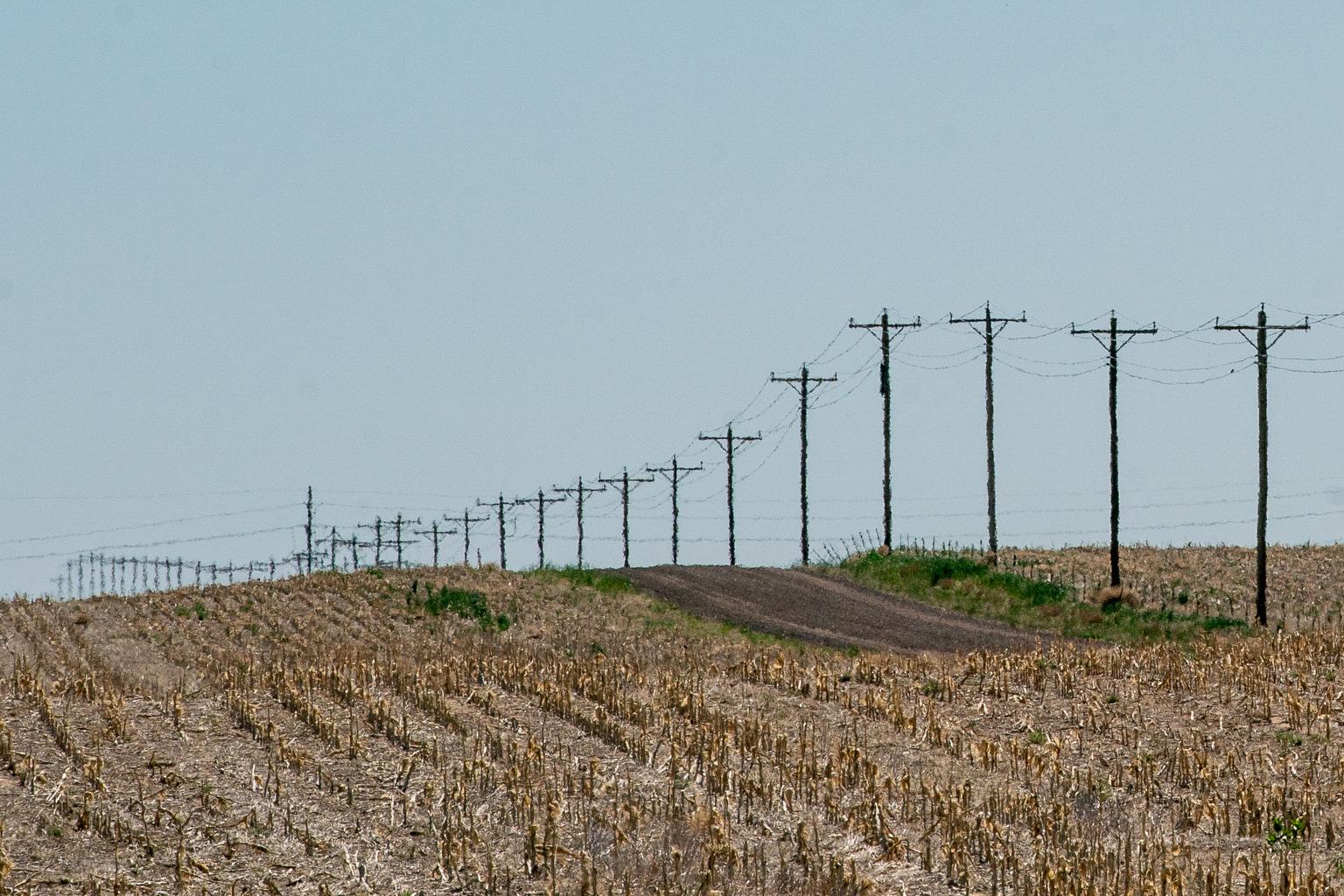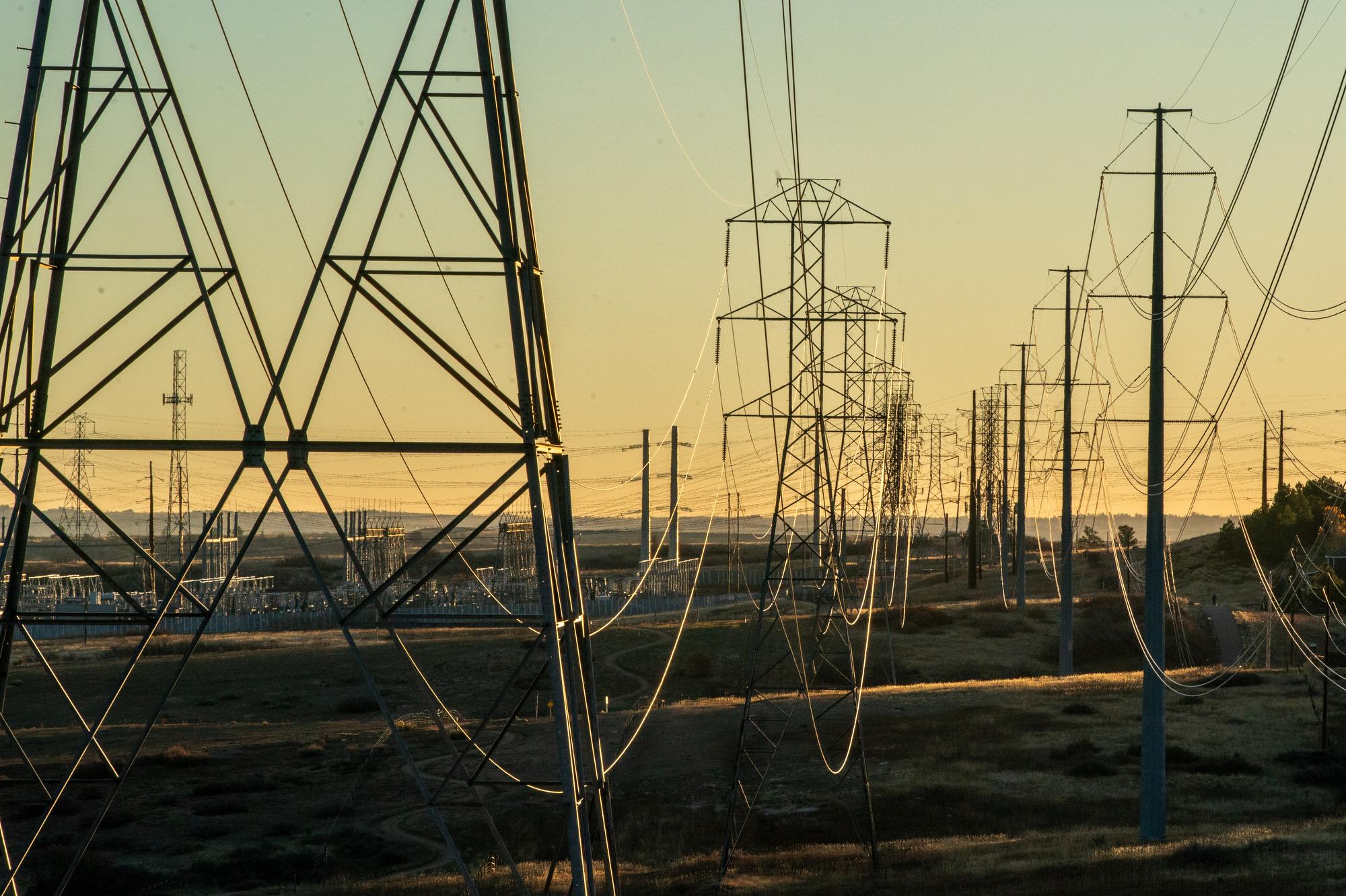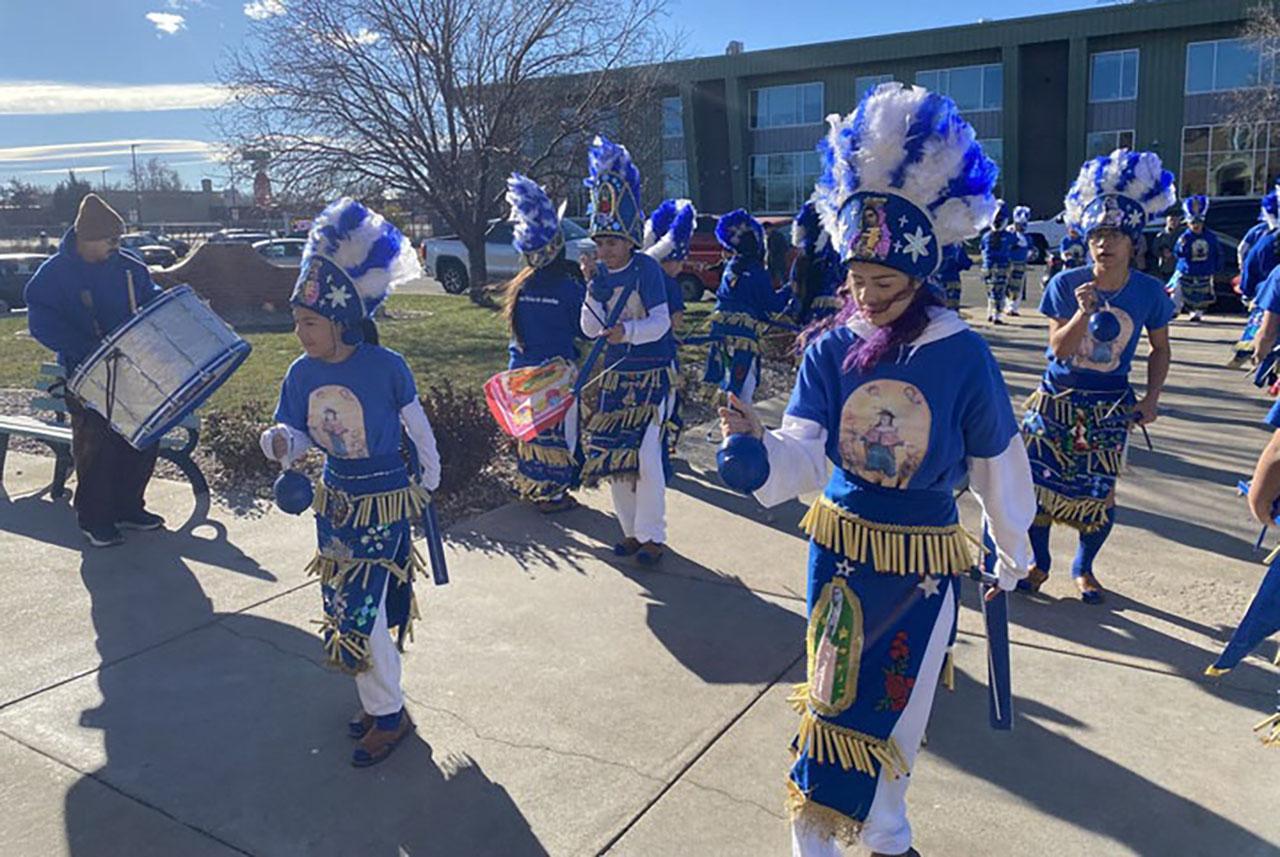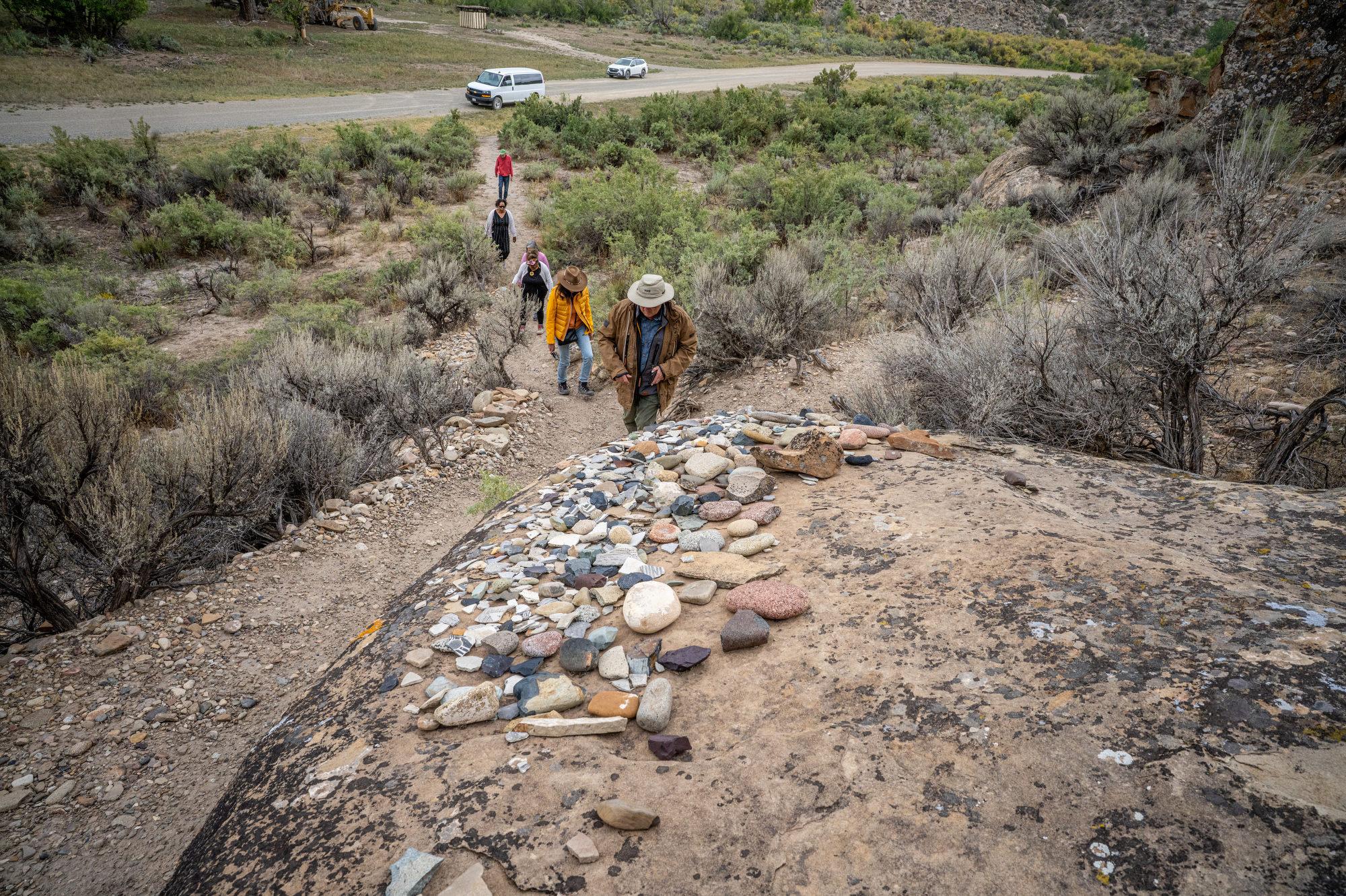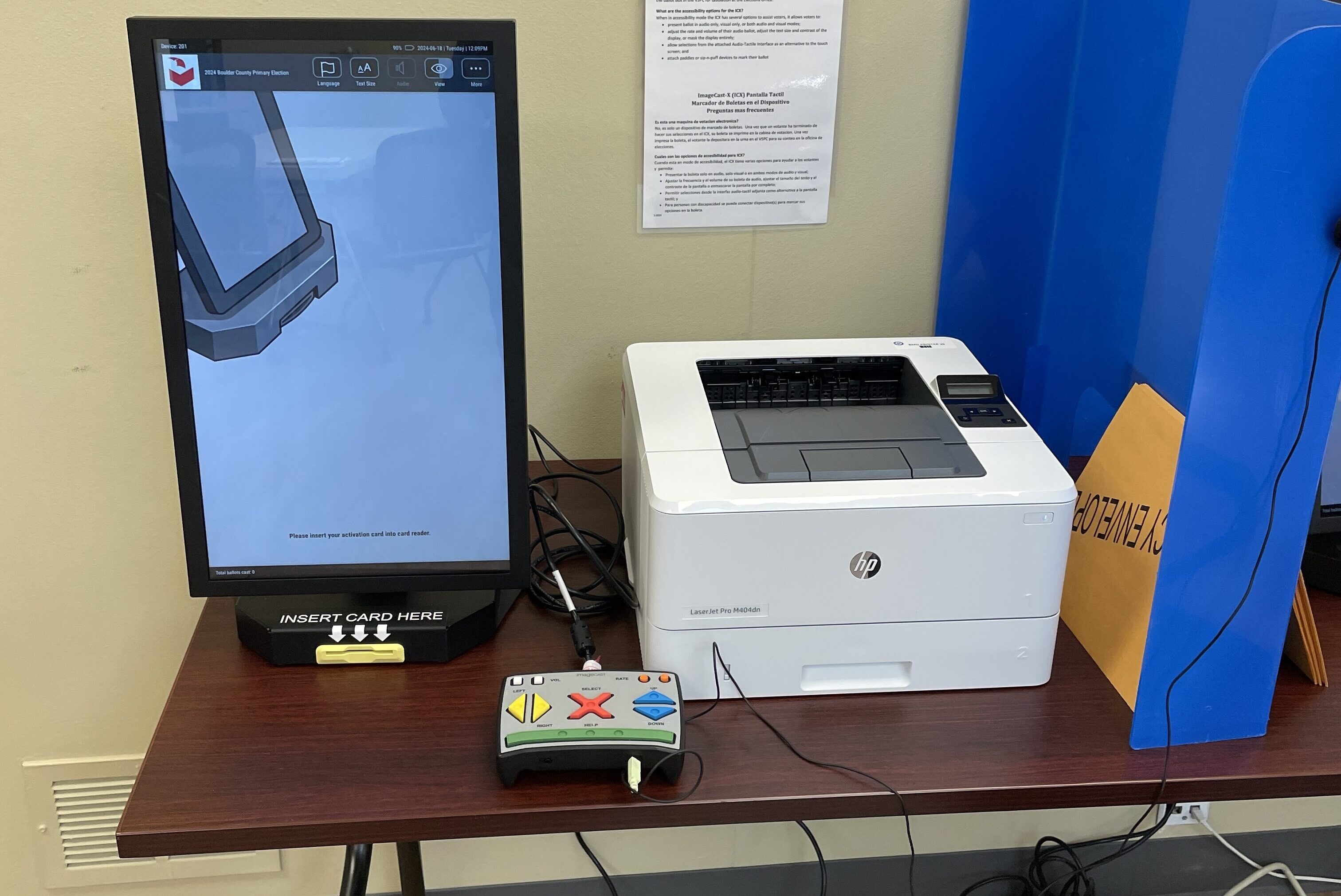
For some Coloradans with disabilities, the upcoming Nov. 5 election will be their first time voting without assistance from another person.
While some communities have been using accessible voting machines for years, this Election Day marks the first time using them for many voters. In a time of widespread political division and mistrust, disabled users and their advocates say the increased independence means a safer, more private experience at the polls.
The Center for People with Disabilities in Boulder hosted an event on Oct. 23 to help residents try the machines for the first time. The group’s mission is to help people live independently, regardless of their needs. That includes protecting their right to vote.
“One of the cornerstones of independent living is voting because we need to have a seat at the table and have a say in the policy and the representatives and people who are making decisions,” said CPD community organizer Craig Towler. “We need to make sure our voice is heard. So there's no better way to do that than through actively participating in our elections and exercising our civic duty.”
Accessible voting machines have been around since the early 2000s, but they were difficult to use and not available everywhere. The upgraded versions were introduced in the state within the last several years. Boulder County got theirs in 2017, but due to the pandemic, many people have never used them in a major election.
In 2019, Colorado lawmakers passed a bill requiring the Secretary of State to ensure that people with vision impairments and other disabilities were still able to independently vote in elections. The state legislature appropriated $50,000 to pay for a system that allows voters to mark their ballot electronically with access through the Secretary of State’s website.
Two years later, in 2021, the state also made it legal for disabled people to vote in person with the accessible voting machines now in use by allowing them to sign their ballots and turn them in after they were filled out electronically. Dawn Brady, a blind Beyond Vision coach at CPD, used one of those machines to submit her ballot this year.
“I was able to take my ballot, put it in the envelope, walk it over to the ballot box and put it in there,” she said. “I have never in my life felt so empowered.”
The machines feature multiple interfaces for people with different needs. Those who are visually impaired have the option to use a keypad that looks like a video game controller with braille descriptions of different functions. Ballot measures and candidates are read to the user through headphones, then they use a keypad to make their selections.
People with reading disabilities can also listen to the ballot and use a touchscreen to complete it. Those unable to hold or mark their ballots can read the screen and make their selections using a special keypad, enabling them to keep their ballot secret.
Prior to this technology, visually impaired people and others had to have election judges read their ballots aloud to them. That could feel like a violation of privacy that defeated the entire purpose of a secret ballot. Sometimes, interpreters would give their own opinions on ballot measures or candidates.
“My experience today, simply put, is illuminating. It's been really the first time in my [life] that I've been able to vote privately and independently as a blind person,” said voter Michael Stone after he cast his ballot.
That sense of independence is something Boulder County Clerk and Recorder Molly Fitzpatrick said is incredibly important for all voters.
“Every single voter has the right to vote in an environment that is comfortable and feels positive and welcome,” she said. “We want voters to feel affirmed. And the right to a secret ballot is so important, and we're always going to champion that for every single voter.”
Part of creating that sense of comfort involved training election judges to use language tailored to help unsighted voters experience a new voting location. Guiding them back to the voting station with words like “You can take five steps before you’ll find a chair so we can get you checked in” versus “Take a seat” ensures voters feel safe and confident when they cast their ballots.
“Working with people with disabilities is so important because we want to service all of our clientele, all of our voters,” said election judge Sue Rife. “They haven't felt like they've had the opportunity to really take their time and have the right equipment to vote on – so that it is their private vote and not somebody assisting them.”
The use of these machines statewide shores up a basic civil right for people who may have felt intimidated by public polling places in the past.
“One in four people in the United States is a person with a disability,” said Towler. “We're a very large voting block and can really influence change.”
Every voting center in Colorado will have accessible voting machines available through Election Day.

